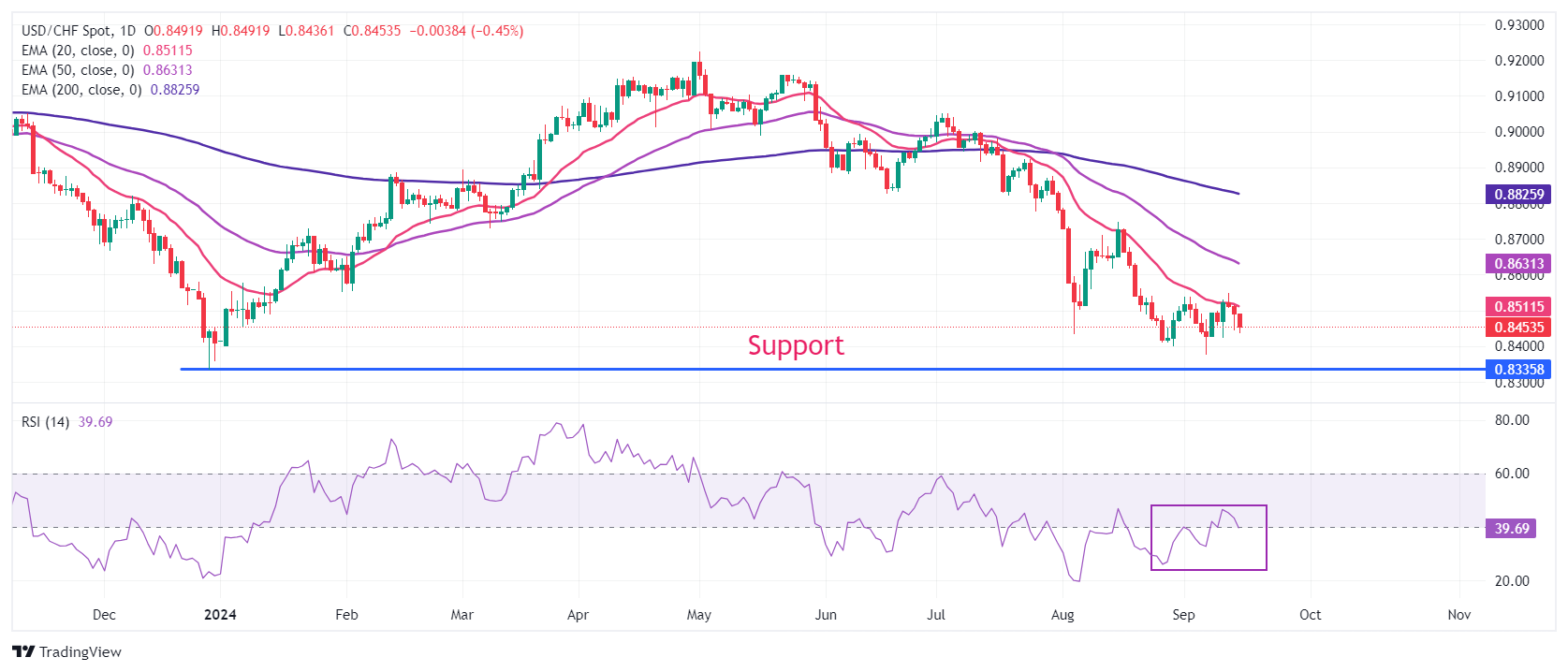If one has the patience or the curiosity to go down certain conservative rabbit holes in social media, one will encounter a small corner of the movement in which one finds a latent or explicit desire to somehow rehabilitate Adolf Hitler and the National Socialists (i.e., the “Nazis.”)
This is often found in the form of comments or memes that take the position that the National Socialists were the defenders of “the West” against a militant Left then growing in Europe. For example, note the below meme with the phrase “I tried to save you” superimposed over Hitler’s face. This image and similar images are generally accompanied by comments to the effect that Western Europe would somehow today be better off if the National Socialists had managed to implement their preferred regime type across Europe. The overall message is that Hitler was some sort of twentieth-century Joseph De Maistre seeking to defend Europe from the wrecking ball of the Left’s revolutionaries.

But, I have some bad news for these self-proclaimed defenders of “tradition.” The National Socialists were not in favor of traditional Western institutions. Far from being the enemies of the revolutionary Left, the National Socialists were the Left, only committed to a slightly different type of totalitarianism than the Leninist Left.
The National Socialists were—as the name would suggest—socialists. Moreover, they were totalitarian socialists, and their institutional model was Soviet totalitarianism.
This has been shown in detail in Hannah Arendt’s book The Origins of Totalitarianism. Arendt notes that Hitler and the National Socialists generally held in contempt the fascist dictatorships of Europe—i.e., the Baltic states, Hungary, Spain, and others—for falling much too short of the totalitarian model. In contrast, Arendt writes, the National Socialists expressed “genuine admiration for the Bolshevik regime in Russia (and the Communist Party in Germany)…”
Destroying the West to Save It
Thus, it is not surprising when Arendt contends that “Hitler never intended to defend ‘the West’ against Bolshevism but always remained ready to join ‘the Reds’ for the destruction of the West, even in the middle of the struggle against Soviet Russia.”
Hitler, of course, hated all Westerners who did not subscribe to his revolutionary ideology. This is the man who ordered the complete destruction of the city of Paris when it became clear that the Wehrmacht would be driven out of northern France. Hitler is also the man who issued the Nero Decree which ordered that all infrastructure in Germany—including that necessary to feed civilians—be destroyed in an effort to slow down the Allies. According to several accounts from his staff, Hitler was unconcerned by the fact this would reduce the German population to a state of utter starvation. For Hitler, German civilization did not deserve to survive since it had failed in its war against the Slavs and other presumed inferiors of Europe.
It’s an odd “defender of the West” who seeks to starve millions of Westerners to death.
Indeed, had Hitler any real regard for preserving Western institutions from the Bolsheviks, he would certainly never have invaded Poland. After all, by the 1930s, it was the Poles—not the Germans—who had become the primary eastern bulwark against the westward spread of Soviet communism.
(The fact that Bolsheviks controlled Russia, of course, was yet another one of Germany’s “gifts” to the world. Had the German Imperial army not destroyed the Tsar’s army in 1918, Lenin would have never been able to take control of the Russian state.)
In the years that followed the First World War, it was the Poles who fought back against the Bolsheviks after Lenin annulled the Treaty of Brest-Litovsk and pushed the Soviet frontier westward in 1919. It was the Poles who heroically stopped the Soviet advance at the Battle of Warsaw in 1920, forcing the Soviets to sue for peace and abandon Lenin’s grandiose plans for Bolshevik conquests in Europe.
Were Hitler interested in weakening Soviet power, he would have, at the very least, sought a stronger Poland as a buffer state between central Europe and the Soviet east. Instead, Hitler signed a treaty with the Soviets designed to destroy Poland and hand over eastern Poland to Soviet communists.
In reality, Hitler was hardly concerned with defending Western civilization, but was driven by far more parochial concerns centered on taking back Danzig from the Poles and subjugating the “inferior” Polish Slavs. Polish racial inferiority, of course, was explicit in Nazi law and Nazi ideology. Heinrich Himmler was sure to leave no doubt of this when he said the policy was to ensure “All Poles will disappear from the world … the great German people should consider it as its major task to destroy all Poles.”
If the National Socialists were so concerned with preserving traditional Western values, it difficult to see how this could possibly be compatible with the extermination of the Poles. After all, Poland was the most significant and reliable outpost of Western civilization in eastern Europe. The Poles were among the most staunch defenders of Latin Christendom. The Poles were the ones who pulled the Habsburgs’ chestnuts from the fire at the Siege of Vienna. During the Cold War, it was the Poles who were a perennial thorn in the side of the Soviet regime—much unlike the comparatively complacent East Germans.
The National Socialists Were Leftists
The fact that the National Socialists were most at home with the revolutionary Left is further explored in detail by the great Austrian polymath Erik von Kuehnelt-Leddihn in his book Leftism: From de Sade and Marx to Hitler and Marcuse.
Kuehnelt-Leddihn was far too well informed to fall for simple-minded theories about Hitler’s alleged good intentions or noble quest to save Christendom.
Regarding Hitler as a “basically mediocre neurotic,” Kuehnelt-Leddihn notes that Hitler “certainly subscribed to Mussolini’s ‘Everything within the State, nothing outside the State, nothing against the State’”—a slogan utterly contrary to traditional Western thought. Hitler had also “drunk from almost the same ideological sources” as socialists like Mussolini, yet this was modified by Hitler’s enthrallment with Czech national socialists. The ideology of the Czech national socialists lent to Hitler many of his core, essentially leftist, beliefs: “anticlericalism, an intimate synthesis between nationalism and socialism, trust in the working class, the peasantry, and the lower middle class, [and] opposition to the nobility.” This ideology was also anti-capitalist and therefore against the bourgeoisie.
The nationalist component of this ideology led to the historical accident of the National Socialists being placed on “the right” even though, as Kuehnelt-Leddihn notes, nationalism was not “conservative” in the European context:
In Germany after World War I, most unfortunately, the National Socialists were seated on the extreme right because to simpleminded people nationalists were rightists, if not conservatives-a grotesque idea when one remembers how antinationalistic Metternich, the monarchical families, and Europe’s ultraconservatives had been in the past. Nationalism, indeed, has been a by-product of the French Revolution (no less so than militarism).
But even for those who find such nuances about nationalism unconvincing, the National Socialist opposition to traditional European institutions can be seen in Nazi hatred for the great conservative power of Europe, the Catholic Church.
Kuehnelt-Leddihn connects Hitler’s anti-Catholicism to his early years living under the conservative Austrian regime which Hitler loathed. After the war, when the Austrian state threatened to arrest Hitler for desertion, this, according to Kuehnelt-Leddihn, “gave further nourishment to Hitler’s hatred for the Catholic Church.”
The realities of National Socialist policy reflect this well, and the Party remained disfavored by the Catholics during the rise of the Third Reich. Kuehnelt-Leddihn writes:
A study of the numerical development of the different parties in the four elections preceding Hitler’s advent to power is most interesting. … Maps which I have published elsewhere show distinctly that religion was a main factor in the territorial growth of National Socialism. … There is no doubt that the Nazi victories were gained primarily with the aid of the Protestant or, to be more precise, the “progressive” post-Protestant areas: A mere glance at the statistical maps proves it.
Once in Power, Hitler’s regime set to work giving the Catholics exactly what they had feared. As with the French Revolutionaries and other totalitarians, the National Socialist regime was committed to de-Christianizing its population. This required that the German state take total control of religious institutions. Churches became de facto state property and there certainly was no freedom of speech or religious practice for Christians. Dissenting clergy of all types were targeted by Hitler’s regime, but Catholic clergy was especially under threat.
For example, Dachau Prison camp contained a barracks specifically dedicated to clergy, where more than 2700 clerics were imprisoned. Nearly 95 percent of these were Catholic clergy. More than a thousand Catholic priests died in Dachau. Non-German clergy fared even worse than those at Dachau. St. Maximilian Kolbe, a Polish citizen, was deliberately starved to death at Auschwitz for political “crimes.”
The National Socialists were more than happy to substitute new religious practices of the variety we’d expect from any leftwing movement today. It’s no surprise that many high-ranking Nazi officials were obsessed with Germanic paganism, occult rituals, and a variety of what we might call “new age” religious beliefs.
Yet, in spite of all the evidence, the “Hitler-tried-to-save-Europe” meme seems to endure among some of those who who fancy themselves as very edgy or contrarian defenders of “Christendom” and “the West.” Moreover, by buying into to the idea of Hitler as some sort of defender of the West, those who favor rehabilitating the National Socialists promote the Left’s propaganda line that the Nazis were conservatives, reactionaries, Christians, or some other type of European traditionalists.
Of course, that shouldn’t surprise us. The National Socialists were never anything better than useful idiots for those who sought to destroy the West. Hitler’s modern-day defenders are no different.
Image Credit: Heinrich Hoffmann, public domain (via Wikimedia.)
Full story here Are you the author? Previous post See more for Next postTags: Featured,newsletter



























